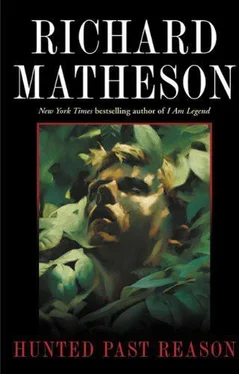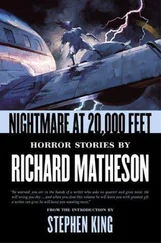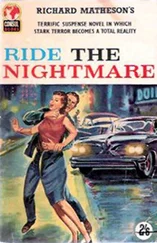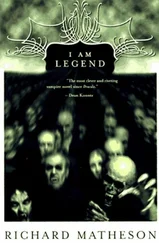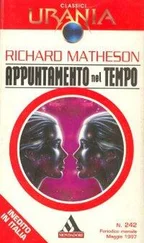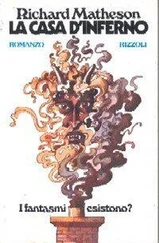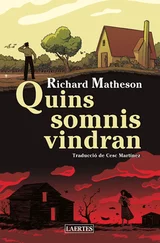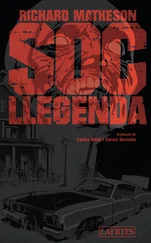“What made you pick this spot for a campsite?” he asked.
“Oh.” Doug shrugged. “A number of things.”
“Like what?”
“You’re not really interested,” Doug told him.
“Yes. I am,” Bob insisted. “I know I’m a dud as a hiker but I would like to know as much as I can for my novel.”
“Your novel,” Doug said. He looked at Bob without expression. “Is there a movie in it?” he asked.
Ah, Bob thought. The entrée to peace. “Probably,” he said, “there are four good male roles in it, two females.”
“Why not just do it as a screenplay then?” Doug asked.
“Oh, no,” Bob said. “I don’t want to put you through all this just for a screenplay. If it gets fucked up—assuming it gets made at all—there’s nothing left to show for it. But if there’s a novel…”
“Yeah.” Doug nodded, conceding. “I understand. That way, if it’s good, you make money from both the novel and the screenplay.”
“Right.” It wasn’t what he’d meant but he let it go. “And, when the time comes—as I hope it will—for the story to be filmed, I’ll certainly suggest you for one of the parts,” he said, playing his trump card.
“Well, I’d love to read the screenplay when you’ve written it,” Doug said, sounding considerably more cheerful now.
“Sure,” Bob said, nodding. “There is a good part for a villain, but he’s a man in his sixties.”
“That’s nothing,” Doug said quickly, “I played a father in Our Town and he had to be a man in his late fifties.”
“Oh.” Bob nodded. “I’ll remember that.”
Doug nodded back, smiling, then made a clucking sound. “So you need to know about what constitutes a good campsite.”
“Yes, I’d like to.”
“Okay.” Doug seemed to think about it for a few seconds, then began.
“Well, to start with,” he said, “it was no problem in the nineteenth century, even the early part of this century. You could cut brush for a campfire, cut logs, drink and wash in the water, have all the room in the world because there were so few campers. Now—” He made a hissing sound of disgust. “Thousands of people every year, screwing up everything.”
“I know.” Bob nodded glumly. “Ruining the environment.”
“I’m not talking about the environment,” Doug said, “I’m talking about camping and backpacking.”
“Oh.” Bob nodded. Should have known, he thought.
“Well, anyway, first of all, proximity to water,” Doug said, “that’s a must, absolutely basic, which is why we’re by a lake. Also the site should be on a gradual slope—well drained. That way, if it rains—”
“You think it’s going to rain?”
“No, no.” Doug waved his hand impatiently. “Just let me finish.”
“Sorry,” Bob apologized.
“If it does rain for any reason, you’re safe from runoff. A meadow would be a bad place to camp, for example. Also, there’s a nice breeze here. Keeps away the bugs.”
“My God, you think of everything,” Bob said.
“Better than being miserable,” Doug replied. “But shut up, I’m a long way from being done.”
“Sorry again,” Bob said, smiling.
“Surrounding trees to break up any wind that rises,” Doug continued.
“I apologize for interrupting,” Bob said, “but why are we so far away from the lake?”
“So there isn’t any chance of contaminating it,” Doug told him. “A lot of idiots camp right by the water and piss and crap all over, polluting what’s supposed to be fresh water.”
Bob nodded. “Got ya.” I should be taking notes, he thought. Was he going to be able to remember all this?
“Open ground,” Doug went on, “no vegetation, rotted trees.”
Bob wanted to ask about the rotted trees but decided to remain silent as Doug continued.
“Up a little high to avoid cold air, which flows downward. Slope facing east, protected from a west wind and getting the sun in the morning, which you’ll find makes it a lot easier to get up.”
“Douglas, I am damned impressed by your knowledge,” Bob broke in, thinking that Doug wouldn’t object to being interrupted in that way.
“Tricks of the trade, Bobby.” Doug grinned at him. I was right, Bob thought.
“Tent needs to be well staked, of course,” Doug said, “so the wind won’t blow it away. Use one with a dome top; gives with the wind. Double wall. Full-cover rain fly.”
I won’t even try to find out what that is, Bob thought.
“Outer shell waterproofed,” Doug continued. “Repels rain and prevents condensation from forming on the inner walls. Curved walls to prevent wind flap, a vestibule to keep rain from blowing in.”
“A vestibule?” Bob asked, visualizing the vestibule of an apartment house in Brooklyn he’d lived in when he was a boy.
“Need a little entryway,” Doug told him. “Wind and rain can blow in through a simple opening. As for the ground cloth, it should be exactly the size of the tent floor. If it sticks outside and it rains, the ground cloth can direct water under the tent. Did you put your iodine tablets in your water?”
“Yeah?” Bob more asked than said.
“Don’t forget to do that all the time,” Doug told him, “ Giardia lamblia can kill.”
“Jesus, what’s that?”
“Parasite,” Doug answered. “Deadly little bastards. Use your iodine tablets always.”
“Ooh,” Bob said.
“What’s wrong?” Doug asked.
“The chicken à la king has done its job,” Bob answered, making a face.
“Just as well,” Doug told him. “Good time to teach you bathroom regulations anyway.”
“Regulations?” Bob laughed softly.
“Oh, yeah,” Doug said, “very important.” He got up. “I’ll show you where to go. Come on.”
“Okay.” Bob winced a little at the pressure in his bowels. “Not too far, I hope.”
“Far enough,” Doug said.
Bob pulled on his boots and got to his feet with a groan. “Stiff,” he said.
“You’ll loosen up,” Doug told him. “Get your flashlight and toilet paper.”
He led Bob away from the camp, walking up the slight rise. He walked and walked. “How far are we going?” Bob asked.
“Far enough,” Doug said again.
Bob couldn’t believe how far they were walking away from the campsite. “Jesus, I’ll need a compass to find my way back,” he said, grimacing; he really had to go now.
“Okay, this should do,” Doug said. Turning, he looked back at the faint glow of the campfire. “About two hundred or so yards,” he estimated. He held out his trowel; Bob hadn’t noticed that he’d brought it with him.
“Okay,” he said, “behind that boulder would be good. Dig a cat hole six to ten inches deep. Squat over the hole and shit. Then, when you’re done, fill the hole back up and tamp the soil down good.”
“What about the toilet paper?” Bob asked.
“That you can’t bury,” Doug told him. “Either you burn it at the campsite or you pack it out.”
“Pack it out?” Bob stared at him incredulously.
“So burn it,” Doug said. “Just make sure the smoke isn’t blowing in my direction.”
Bob nodded. “What if the ground’s too hard for digging?”
“Cover your crap with dirt or leaves or dead bark or whatever you can find. Just don’t leave it uncovered. Some animals might eat it.”
“Oh, Jesus,” Bob said, moving behind the boulder. He started to undo his trousers, watching Doug’s form moving back toward the camp.
“What if I have to take a leak during the night?” he called after him. “Do I have to schlepp all the way back here?”
“No,” Doug said across his shoulder. “Just move a decent distance from the campsite.” After a few moments, he added, “And try to pee downwind.”
Читать дальше
